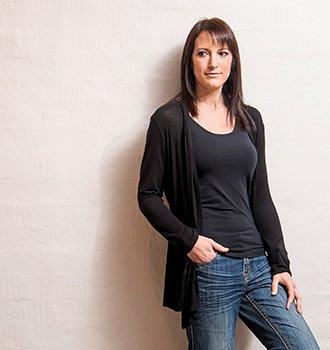Latest News Archive
Please select Category, Year, and then Month to display items
13 November 2018
Photo Moeketsi Mogotsi
 Kovsies took an active stance against sexual and gender-based violence through various campaigns in October.
Kovsies took an active stance against sexual and gender-based violence through various campaigns in October.
President Cyril Ramaphosa recently announced that South Africa will launch a national strategic plan to tackle gender-based violence (GBV) after years of lobbying by activists. Speaking at the Presidential GBV Summit, the head of state commended activists who called for a nationwide shut down in August in response to high levels of GBV and femicide in the country. He says the government is now reviewing national GBV plans and will develop a national action plan.
Activism at the UFS
One of the efforts launched by the University of the Free State’s (UFS) Gender and Sexual Equity (GSE) Office in the fight against this plague is the # RESPECTME campaign. From 11 to 26 October 2018, the university held its own 16 Days of Activism.
Geraldine Lengau of the GSE Office believes that minority groups deserve the same amount of respect as all other citizens of this country, which is the core concept of the campaign. “The Campaign is a loudhailer to say, ‘just because I am different from you’, be it gender or sexuality, it doesn’t mean that I deserve any less respect,” she highlighted.
Lengau added: “Activism will forever remain important on our campuses as it creates an environment where the community is made aware of matters that would otherwise not have mattered had they not been publicised. Also activism becomes all the more important in advancing the university’s strategic plan.”
Policies advocating against GBV
As stipulated in the UFS Sexual Harassment, Misconduct and Sexual Violence Policy the university strongly believes in the principle of human dignity that is entrenched in the Constitution of South Africa (1996) which resolves to ensure a safe working and study environment for students.
Student Affairs also led a campaign which aimed to highlight the ongoing scourge of sexual and gender-based violence, in line with the policy. “The university is working relentlessly at endorsing the aspects and characteristic traits of respect amongst all of its stakeholders in an effort to reduce the notion of gender-based violence,” said the Dean of Student Affairs, Pura Mgolombane.
#Women'sMonth: Lack of HIV education still affects children
2017-08-17

Dr Nickie Goedhals, Senior Lecturer and Pathologist
in Medical Microbiology and Virology at the UFS.
Photo: Sonia Small
“Despite all the advances in the management and prevention of HIV, children still become infected every day, often due to lack of education and access to health care.” This is according to Dr Nickie Goedhals, Senior Lecturer and Pathologist in Medical Microbiology and Virology at the University of the Free State (UFS).
Study published in UK medical Journal
A case study she was part of and published in the UK medical journal The Lancet in 2012, demonstrates the transmission of HIV to a child through surrogate breastfeeding. This study is one of the many highlights in the young researcher’s career. She received her first rating from the National Research Foundation (NRF) in 2017 for the work she has done in Medical Virology over the past eight years.
According to the above-mentioned study, only about 1% of infants in South Africa are being breastfed by a surrogate. However, results from a study in the Free State showed that shared breastfeeding by a non-biological caregiver was the most important factor associated with HIV infection in discordant mother-child pairs. Therefore, continued education about the risk of HIV transmission is needed.
Dr Goedhals is also continuing with research on HIV by looking at HIV drug resistance. She is in the process of starting new projects focusing on HIV infection and drug resistance in infants.
PSP helped with NRF-rating
She says, although her NRF Y2-rating is the starting point of a research career, it shows that she is heading in the right direction, and it “gives access to research funds through the NRF for future projects.” Other important research she conducted was on Crimean-Congo haemorrhagic fever – the study for her PhD.
The Prestige Scholars Programme (PSP) at the UFS is the reason that she applied for the rating. “With all the service delivery, teaching, and administrative responsibilities of academic medicine, it is easy to lose focus. The PSP has really helped to create a focused and stimulating environment for research.” According to her, the PSP also provides access to a network of peers and senior staff at the UFS, as well as exposure to national and international experts.